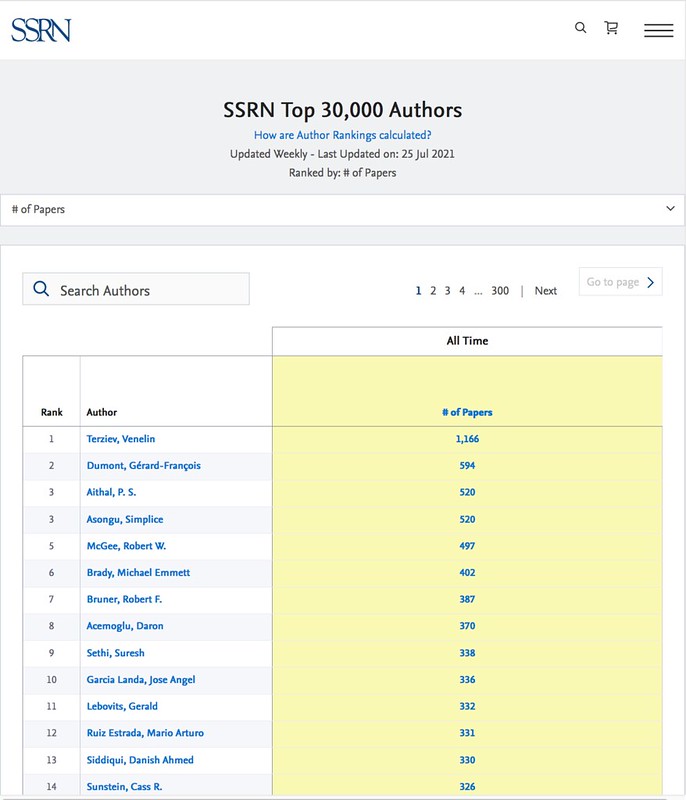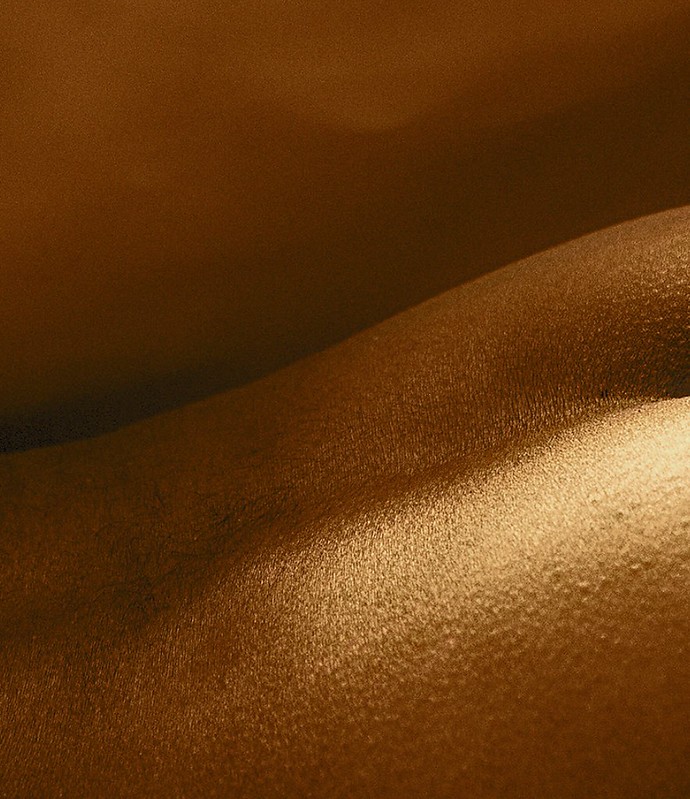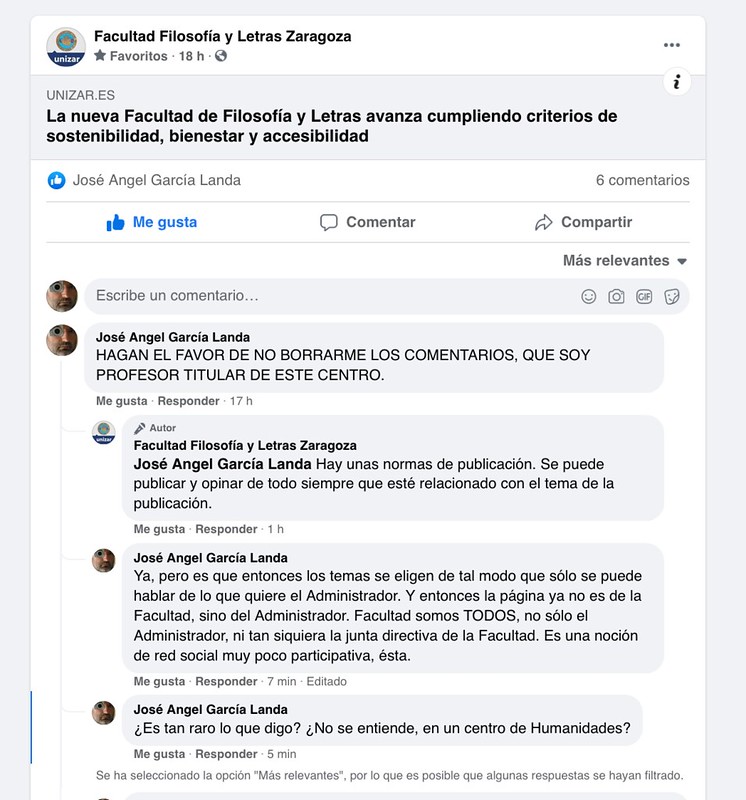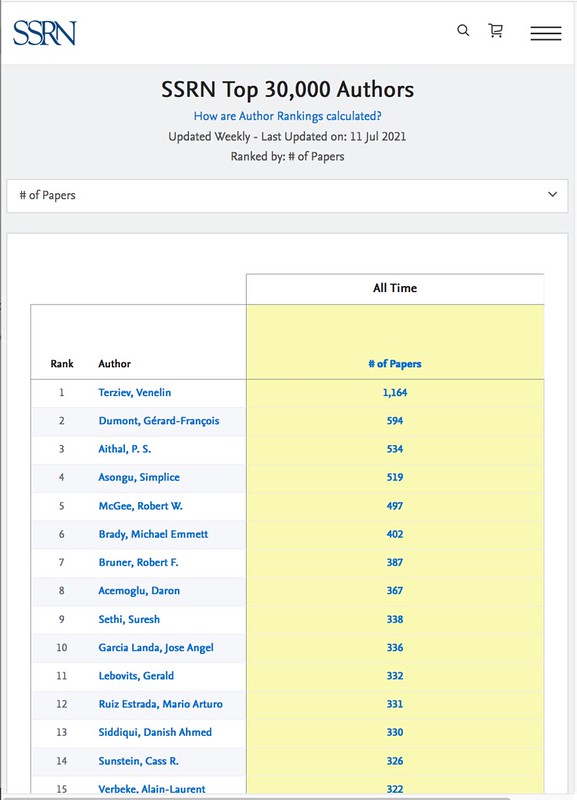sábado, 31 de julio de 2021
viernes, 30 de julio de 2021
ACT AGAINST THE SCOUNDRELS
Since some of you out there want to listen to politicians and celebrities about everything, take a couple minutes and listen to an actual MD who’s studied the virus and published over three hundred articles in the fields of immunology, bacteriology, virology, and parasitology https://t.co/XEH801fcyS
— Joe Clark (@_JClark5_) July 29, 2021
Prof. Dolores Cahill warned us last year. Animal trials of mRNA vaccines ALL failed, ADE was all over these.
— Garry Keogh (@garrypkeogh) July 29, 2021
Next winter will ilicit ADE on a global scale! https://t.co/ReRnmdoVdX
El escrito de acusación penal
Me citan en este artículo
Taranilla, Raquel. "El escrito de acusación penal: Convenciones genéricas en la configuración del relato de los hechos." Ivardande: Revista Electrónica de Semiótica y Fenomenología Jurídicas Burcaramanga 2.2 (March 2013-Feb. 2014): 64-94. Online at Scribd (alilozadaprado) 5 Nov. 2014.*
https://es.scribd.com/doc/245618837/
2014
_____. "El escrito de acusación penal: Convenciones genéricas en la configuración del relato de los hechos." Ivardande: Revista Electrónica de Semiótica y Fenomenología Jurídica 2.2 (March 2013 – Feb. 2014): 64-94. Online at Academia.*
https://www.academia.edu/6254528/
2021
—oOo—
jueves, 29 de julio de 2021
miércoles, 28 de julio de 2021
martes, 27 de julio de 2021
lunes, 26 de julio de 2021
domingo, 25 de julio de 2021
Virtud aparente: Dramatismo y detección del hipócrita
Benito Jerónimo Feijóo (el Feijóo bueno) escribe sobre el teatro cotidiano de la hipocresía con la agudeza de un Goffman del siglo XVIII en su Teatro Crítico:
Virtud aparente
Los hipócritas perfectos son pocos. Llamo hipócritas perfectos a aquellos cuya superficie toda es devoción y el fondo todo iniquidad...
No hay que admirar que sean pocos éstos, no obstante ser el camino de la hipocresía el más breve que hay para el templo de la Fortuna. Son pocos los que tienen la robustez de espíritu necesaria para una vida tan trabajosa. Concíbase cuanto se quisiere ardua la virtud, más penosa es la fingida que la verdadera. Es menester un continuo estudio inseparable de un continuo afán; una vigilancia infatigable en reprimir las irrupciones del alma, que sin intermisión pretende campear hacia afuera. No hay pasión que como fiera atada no forcejee por ormper las prisiones en que la pone el disimulo. No late menos la facultad animal del corazón en el semblante que la vital en la arteria. Su movimiento interno es como el del reloj que tiene afuera voz que le publica y mano que le señala. No hay palabra, no hay acción que, si no se rige con contrario ímpetu, no sigue el curso de aquella animada máquina. Solicitan importunamente a los ojos la curiosidad y la lascivia; brma por desahogarse en la voz y en el ceño la impaciencia; la chocarrería oída con gusto provoca a la risa; llama la injuria a la venganza; la lengua y el oído están mal hallados con el silencio; no hay miembro que a su pesar no se haya de dejar regir hacia la representación de compostura; son infinitas las cuerdas de que se compone la armonía de un exteriorior modesto y todas deben estar violentamente tirantes; a las puertas de todos los sentidos dan continuas aldabadas los apetecidos objetos. ¿Qué fuerza hay bastante a resistir tantos impulsos o a manejar a un tiempo tantas riendas?
Añádase a esto el susto de ser cogidos en la trampa. En cuantos ojos la circundan otras tantas espías enemigas temen. Bien conocen la dificultad de conservar siempre inaccesible el alma a la observación ajena. Por más que se cierren las ventanas, quedan en imperceptibles descuidos innumerables resquicios. Cuando logren engañar la multitud, no faltan espíritus trascendentes que distinguen, en cualquier parte que se halle, lo natural de lo artificioso. por más que la afectación remede la realidad, una y otra tienen sus notas, bien que inexplicables, perceptibles; un carácter especial que se sujeta a la inteligencia y se niega a la voz. El mismo cuidado de ocultar al alma la hace visible, porque es visible la cautela y es visible también que los corazones inocentes no usan de este estudio. Todo hombre muy circunspecto se hace sospechoso. El que está asegurado de su conciencia, obra y habla con abertura. Ni le aprovechará al hipócrita ponerse a imitar aquella nativa franqueza, nunca acertará con el punto debido. Siempre los que tienen conocimiento distinguirán entre el original y la copia. Así yo creo que hasta ahora no hubo hipócrita que acertase a engañar a todo el mundo....
(IV, Disc. I).
Mil páginas de CV
El que la sigue la consigue, al final he alcanzado y superado las mil páginas de currículum vitae. Aquí puede verse en Academia, sitio que por cierto estrena un nuevo diseño:
https://unizar.academia.edu/Jos%C3%A9AngelGarc%C3%ADaLanda/CurriculumVitae
Me dirán que incluyo en el currículum cualquier cosa, hasta unas muestras y garabatos que hacía en Parvulitos. Y es cierto, lo reconozco. Y demasiados enlaces con artículos colgados en cinco repositorios. Pero en mi descargo diré que tampoco incluyo todo lo que podría—así que considérenlo la versión abreviada, y más que suficiente para nuestros fines.
—oOo—
PATENTS PROVE CORONAVIRUS WAS MANUFACTURED
Patents prove SARS-CoV-2 and the big pandemic scare were quite deliberately manufactured by Big Pharma and a number of globalist agents. Read Joseph Mercola's article on David Martin's research, and listen to the latter's interview with Reiner Fuellmich.
PATENTS PROVE CORONAVIRUS WAS MANUFACTURED
Mercola, Joseph (MD). "Covid Vaccine Deaths and Injuries Are Secretly Buried." Mercola.com (June 2021).*
https://media.mercola.com/ImageServer/Public/2021/July/PDF/covid-vaccine-deaths-and-injuries-pdf.pdf
2021
_____. The Truth about Covid-19: Exposing the Great Reset, Lockdowns, Vaccine Passports, and the New Normal. 2021.
_____. "Patents Prove SARS-CoV-2 Is a Manufactured Virus." Mercola 24 July 2021.* (David Martin).
https://articles.mercola.com/sites/articles/archive/2021/07/24/patents-prove-sars-cov-2-is-a-manufactured-virus.aspx
2021
And:
Fuellmich, Reiner. "Dr. David Martin & Reiner Fuellmich Interview." Odysee 12 July 2021.* (SARS coronaviruses, Covid conspiracy and fabrication).
https://odysee.com/@vaccines-covid-nwo:3/JgxEMA02opvp:6
2021
Transcription:
https://www.digital-downloads.org/downloads/reiner-fuellmich-interviews-david-martin/
2021
¿POR QUÉ TRAGAR CON TODO ESTO?
Escuchen a este doctor pic.twitter.com/c3fMxKiNmH
— DADDY MOU ® (@ENGINEER__28) July 24, 2021
sábado, 24 de julio de 2021
viernes, 23 de julio de 2021
Un Murciano Encabronao; ¿Es ya España una dictablanda?; con Hugo Pereira
"GAY" de Liébana, no "Guey" de Liébana—que no es gay.
¿Tenemos límite?
¿TENEMOS LÍMITE PARA LO QUE LE ADMITIRÍAMOS AL GOBIERNO ORDENARNOS?
¿ANDAR A CUATRO PATAS?
¿ENCERRARNOS EN CASA?
¿TAPARNOS LA BOCA? ¿PINZA EN LAS NARICES?
¿VENDA EN LOS OJOS?
Contra la ley de " 'Memoria Democrática' " [sick]
¿Nos estamos dando cuenta de que la ley que prepara Sanchez es el Tribunal de Inquisición y el ataque más fuerte a la Libertad de expresión? @jesuspalaciosjp
— miss B (@MISSBLANDINGS) July 23, 2021
Lean a @jesuspalaciosjp pic.twitter.com/fyQMVzMqHv
Aquí se lee mejor, haciendo clic:

jueves, 22 de julio de 2021
Carlos Cuesta: Sánchez y el Frente Popular coinciden en algo: ambos quieren acabar con la democracia
A Carlos Cuesta:
"Pónganse tres mascarillas", nunca... ¡HAY QUE SER MAJADEROS PARA IR CON MASCARILLA PARA SUPUESTAMENTE DESAGRADAR A SÁNCHEZ!
Y ENCIMA LO PREDICA USTED SIN MASCARILLA. ¿¿¿¿¿ PERO DE QUÉ VAN??????
¿SE CREEN QUE TRATAN CON IDIOTAS? (QUE PUEDE QUE SÍ?)
¿VACUNARSE? CUANDO SE LO RECETE SU MÉDICO
Prevención sanitaria. Un consejo les voy a dar antes de vacunarse. Que consulten a su médico. En eso vengo a convenir con prominentes covidistas y ´vacuneitors´, como el Primer Ministro de Australia. De lo cual se colige que siempre puede haber un terreno de encuentro.
______
¿Va a vacunarse y quiere evitar posibles efectos adversos? Visítese primero con su médico, y siga sus consejos a la hora de vacunarse o no. Eso nos recomienda el Primer Ministro de Australia, para evitar problemas. Porque ya quedó claro que los contratos con las farmacéuticas les eximen a estas empresas de hacerse responsables por cualquier efecto indeseable (malestar o muerte). Y el gobierno (el australiano al menos) tampoco quiere hacerse responsable. Usted es responsable de asesorarse sobre su salud y tomar decisiones al respecto. Y luego, si pasa algo, que le vayan con las quejas al médico, o al maestro armero.
PM: AstraZeneca deaths the ‘terrible impact’ of pandemics pic.twitter.com/p2wenGWBtW
— Camus (@camus37) July 22, 2021
Y yo aún les daré un consejo más concreto: vacúnense cuando su médico se lo recete— por escrito, como harían antes de inocularse cualquier otro medicamento. Pero mejor que una receta, que les expida el médico un informe razonado de por qué a usted le conviene vacunarse. No lo verán sus ojos.
Y si ya puestos se quieren reír un rato, vayan a vacunarse con la cartilla de vacunación en mano—la de la viruela, la polio, etc.—. Y pidan que se la sellen antes de vacunarse con estos mejunjes—o después.
Se ocultan las muertes y daños debidos a las vacunas
—oOo—
El más leído en absentia
Soy (o eso me quieren hacer creer) el más leído en la Universidad de Zaragoza, al menos en su avatar de ResearchGate. Es un buen posicionamiento en la Universidad, aunque nadie me lo ha reconocido hasta ahora—menos quien importa, supongo, que es ResearchGate.
—oOo—
El más leído en Ibercampus EU
He de rendirme a la evidencia de que soy el autor más popular de Ibercampus Europa. Uno de los más leídos siempre en Ibercampus, versión española, pero el único leído en Ibercampus Europa, en inglés, por la razón me temo de que debo de ser el único usuario ya a estas alturas, único autor digo, lectores aún se dejan caer algunos con cuentagotas, pero por lo que se ve sólo leen (o sólo leo) mis artículos:
Lo que más me revienta no es la falta de competencia, que a mí eso me deja frío, sino aparecer al lado del fantoche ése de Sassy Science.
Tengo un arte especial para acabar siendo el único usuario de sitios académicos supuestamente abiertos a la participación de muchos. Si conocen otro digital que atienda a las universidades hispanas, les agradeceré que me lo digan, a ver si voy y lo hundo con mis contribuciones, suponiendo que las acepten.
—oOo—
Franco Battiato - La Cura
La cura – 00:00 Prospettiva Nevski – 04:03 Amore che vieni, amore che vai – 08:03 Summer on a Solitary Beach – 10:31 La stagione dell'amore (live) (da Unprotected) – 15:29 Voglio vederti danzare (live) (da Giubbe rosse) – 19:09 Strani giorni – 22:32 Bandiera bianca – 26:29 Il ballo del potere – 31:50 Up Patriots to Arms – 36:15 L'era del cinghiale bianco – 41:17 Sentimiento nuevo – 45:32 Shock in my Town – 49:51 Quello che fu – 54:13 Vite parallele – 58:41 Ecco com'è che va il mondo – 1:02:06 J'entends siffler le train – 1:06:29 La canzone dell'amore perduto – 1:09:40 Te lo leggo negli occhi – 1:13:07
—oOo—
miércoles, 21 de julio de 2021
martes, 20 de julio de 2021
LA 'LEY DE MEMORIA DEMOCRÁTICA', UNA AMENAZA CONTRA LA LIBERTAD
La ley de 'Memoria Democrática': una amenaza para la libertad
— Fundación Disenso (@FDisenso) July 20, 2021
Presentamos un amplio informe en el que se abordan los aspectos más relevantes y controvertidos de la nueva ley aprobada este martes por el Consejo de Ministroshttps://t.co/ng99WLeXje
Conspiracy Theory from 2018
Conspiracy theory from 2018.... pic.twitter.com/RQziWBPUm0
— Camus (@camus37) July 19, 2021
lunes, 19 de julio de 2021
domingo, 18 de julio de 2021
Top ten en Lingüística
Dear Jose Angel Garcia Landa:
Your paper, "THEORIES OF INTERPRETATION: CLASSICAL TO ROMANTIC HERMENEUTICS", was recently listed on SSRN's Top Ten download list for: LingRN: Pragmatics, Semantics, & Semiotics (Topic).
As of 18 July 2021, your paper has been downloaded 343 times. You may view the abstract and download statistics at: https://ssrn.com/abstract=
Top Ten Lists are updated on a daily basis. Click the following link(s) to view the Top Ten list for:
LingRN: Pragmatics, Semantics, & Semiotics (Topic) Top Ten.
Click the following link(s) to view all the papers in:
LingRN: Pragmatics, Semantics, & Semiotics (Topic) All Papers.
Nota al Instituto de Humanidades y Patrimonio
Se nos presenta así el Instituto de Humanidades y Patrimonio en la Universidad de Zaragoza, anunciando un convenio de cooperación cultural.
A lo que les añado mi siguiente apostilla, en mi batallita particular contra el Covidismo Mental:
El respeto mínimo al patrimonio cultural y a la tradición de las humanidades, y a la humanidad sin más, requiere NO IMPONER UNA NORMA INAUDITA como la de usar mascarilla, sólo impuesta hasta hoy por los peores regímenes abusivos. Aún diré más, me parece una pésima costumbre usarla, fomentando el alarmismo, pero me parece INTOLERABLE el imponerla dictando normativas que atropellan la libertad personal. ¿Aún se entiende lo que digo, suenan los conceptos, o ya sueno a marciano?
—oOo—
sábado, 17 de julio de 2021
The Anxiety of Influence selon René Girard
René Girard no habla de la famosa teoría de Harold Bloom sobre "la angustia de la influencia" (The Anxiety of Influence), pero este pasaje en el que recapitula su teoría sobre la repetición mimética ilumina, creo, las ideas de Bloom sobre la influencia, sobre los predecesores poéticos, y la turbia actitud hacia ellos de los influenciados. Así la resume Bloom en su libro:
It does happen that one poet influences another, or more precisely, that one poet's poems influence the poems of the other, through a generosity of the spirit, even a shared generosity. But our easy idealism is out of place here. Where generosity is involved, the poets influenced are minor or weaker: the more generosity, and the more mutual it is, the poorer the poets involved. And here also, the influencing moves by way of misapprehension, though this tends to be indeliberate and almost unconscious. I arrive at my argument's central principle, which is not more true for its outrageousness, but merely true enough:
Poetic Influence—when it involves two strong, authentic poets,—always proceeds by a misreading of the prior poet, an act of creative correction that is actually and necessarily a misinterpretation. The history of fruitful poetic influence, which is to say the main tradition of Western poetry since the Renaissance, is a history of anxiety and self-saving caricature, of distortion, of perverse, wilful revisionism without which modern poetry as such could not exist. (Harold Bloom, The Anxiety of Influence, 30)
Otros dos breves pasajes significativos:
"Be me but not me" is the paradox of the precursor's implicit charge to the ephebe. Less intensely, his poem says to its descendant poem: "Be like me but unlike me". If there were no ways of subverting this double bind every ephebe would develop into a poetic version of a schizophrenic. As the pragmaticists of human communication, following Gregory Bateson, say, the double bind "must be disobeyed to be obeyed; if it is a definition of self or the other, the person thereby defined is this kind of person only if he is not, and is not if he is." An individual in the double bind situation is published for correct perceptions. "The paradoxical injunction . . . bankrupts choice itself, nothing is possible, and a self-perpetuating oscillating series is set in motion" (see Pragmatics of Human Communication, by Watzlawick, Beavin, and Jackson). (p. 70).
"The strong poet peers in the mirror of his fallen precursor and beholds neither the precursor nor himself but a Gnostic double, the dark otherness or antithesis that both he and the precursor longed to be, yet feared to become. Out of this deepest evasion, the complex imposture of the positive apophrades constitutes itself, making possible the last phases of Browning, Yeats, Stevens—all of whom triumphed against old age. (The Anxiety of Influence, p. 147).
Y ahora el comentario inconsciente e involuntario, pero muy pertinente, de René Girard:
Répétons donc une fois de plus, en nous excusant, le mécanisme de la répétition mimétique. Le sujet qui ne peut pas décider par lui-même de l'objet qu'il doit désirer, s'appuie sur le désir d'un autre. Et il transforme asymptomatiquement le désir modèle en un désir qui contrecarre le sien. Parce qu'il ne comprend pas le caractère automatique de la rivalité, l'imitateur fait bientôt du fait même d'être contrecarré, repoussé et rejeté, l'excitant majeur de son désir. Sous une forme ou sous une autre, il va incorporer toujours plus de violence à son désir. Reconnaître cette tendance, c'est reconnaître que le désir, à la limite, tend vers la mort, celle de l'autre, du modèle-obstacle, et celle du sujet lui-même.
Ce mouvement du désir mimétique ne se laisse pas seulement repérer chez les malades, chez ceux qui poussent le processus mimétique trop loin pour fonctionner normalement mais aussi, comme le disait Freud, chez les gens dits "normaux". (Des choses cachées depuis la fondation du monde, 570)
Los poetas más normales son algo anormales con respecto al sujeto medio, habría que observar a este respecto.
La teoría de Girard es una teoría general de la cultura a través de la rivalidad del deseo; es por tanto más amplia que la de Bloom, y puede servir convenientemente para enmarcarla en una teoría antropológica general de la rivalidad y de la configuración mimética de la identidad personal.
—oOo—
BOMBAZO, Europa aprueba una ley de vigilancia masiva en WhatsApp, Gmail y otras apps
Y Estados Unidos no se queda atrás en esta epidemia de totalitarismo invasivo:
Tucker Carlson on how Biden & Facebook team up to censor online content pic.twitter.com/psMgnvJH6M
— Camus (@husserl80) July 17, 2021
Bueno, ya sabíamos desde hace años que Obama le leía el correo a todo el mundo con apoyatura legal o sin ella.
—oOo—
Se Ocultan las Muertes y Daños debidos a las Vacunas
Los medios y los desinformadores de las instituciones oficiales están ocultando los efectos adversos, incluidos miles de muertes, debidos a las vacunas. Estoy hablando de lo que sucede en Estados Unidos: "aquí estas cosas no podrían pasar".
Según los datos oficiales del VAERS, sistema nacional de informe sobre efectos adversos de las vacunas, y esta lectura de sus datos que hace el Dr. Mercola:
Mercola, Joseph. "Covid Vaccine Deaths and Injuries Are Secretly Buried." Mercola.com (June 2021).*
https://media.mercola.com/ImageServer/Public/2021/July/PDF/covid-vaccine-deaths-and-injuries-pdf.pdf
2021
Datos de "eventos adversos" del VAERS:
Además, anuncia el gobierno fraudulento de Biden una mayor colaboración con Facebook para controlar la "desinformación" sobre cuestiones sanitarias en las redes sociales. Hasta ahora no se han esmerado lo suficiente, pues esta información me la ha pasado un amigo por Facebook.
La Dictadura Sanitaria sigue progresando, a tanto mayor ritmo cuanto que es más remoto el peligro del virus y más inmediato y alarmante el de las vacunas y la manipulación oficial de estos déspotas supuestamente benevolentes y filántropos.
________________
Durden, Tyler. "Vaccine Expert Vanden Bossch Calls for 'Immediate Halt' to Vaccinations, Says they Encourage 'Escape Mutant' Variants." Zero Hedge 13 Aug. 2021.*
2021
Trikooba. "El número de embarazadas que perdieron a su bebé después de recibir la vacuna Covid en el Reino Unido aumenta considerablemente en tan solo seis semanas." Trikooba 30 March 2021.*
2021
—oOo—
viernes, 16 de julio de 2021
Soy Rarito
Lo realmente rarito, o espeluznante según se mire, es que estas cuestiones no interesen a nadie en esta Facultad, ni haya masa crítica de opinión ni siquiera para promover un debate al respecto.
La Constitución proclama la libertad para exponer las propias ideas utilizando todos los medios de comunicación. Sería muy extraño que la letra pequeña nos dijese que en realidad sólo se puede decir lo que quiera el jefe.
Pues ésta parece ser la opinión más extendida y aceptada en mi Universidad. Y el facha encima seré yo.
—oOo—
jueves, 15 de julio de 2021
Top Ten Author
Estoy posicionado en el puesto número 10 del SSRN por número de artículos aceptados:
Quizá sea éste mi mejor posicionamiento objetivable jamás conseguido a nivel internacional.
—oOo—
El TC declara inconstitucional el Estado de Alarma
. @eslamananadeFJL a las 8: EL TC declara inconstitucional el confinamientohttps://t.co/ctUfTLfI6t
— esRadio (@esRadio) July 15, 2021
Cómplices de Sánchez
El Constitucional declara inconstitucional el estado de alarma decretado en la primera ola de la pandemia
— @PabloSaezAM (@PabloSaezAM) July 14, 2021
VOX no solo lo rechazó y lo impugnó ante el TC sino q @Santi_ABASCAL planteó moción de censura al gobierno.
Todos se retrataron haciéndose cómplices políticos.#SoloQuedaVox pic.twitter.com/aKnWdMIAi7
miércoles, 14 de julio de 2021
martes, 13 de julio de 2021
TRADUZCO: ¡¡¡¡NO SE VACUNEN!!!!
An Urgent Message from Professor Sucharit Bhakdi
URGENT! Some good news and some troubling news, from Professor Sucharit Bhakdi, M.D.
Oracle Films recently produced an interview with Professor Sucharit Bhakdi in collaboration with Oval Media in Germany, for an upcoming documentary.
As an aside to the interview, Dr. Bhakdi emphasised the urgent need to share the following information that has emerged from new scientific literature.
PLEASE take the time to process this presentation. Dr. Bhakdi explains clearly, based on new scientific evidence, why he believes:
- Your immune system is your best defence against SARS-CoV-2, and indeed all coronaviruses.
- If you have been infected, even if you experienced no symptoms at all, you are immune to all variants.
- We have already reached herd immunity.
- There is no scientific reason to vaccinate against SARS-CoV-2. There is simply no benefit and the rollout must be stopped.
And much more.
BIBLIOGRAFÍA DEL EXPEDIENTE ROYUELA
Otro extracto de la Bibliografía, en 150 páginas:
MIERDAS MAMPORREROS
LOS PODEMITAS SON UNOS MIERDAS MAMPORREROS DE DICTADORES, Y SUS VECINOS DE GOBIERNO Y HEMICICLO TAMBIÉN. https://t.co/YQ2JaXm6FL
— JoséAngelGarcíaLanda (@JoseAngelGLanda) July 13, 2021
LA TIRANÍA SANITARIA DE LOS GLOBALISTAS
A ESTE MIERDA ESBIRRO DE LOS COVIDIANOS HAY QUE ECHARLO A PATADAS RODANDO POR LA CALLE. ¡¡¡POR FAVOR QUE VENGA LE PEN, PERO YA!!!! HAY QUE LIBRARSE DE ESTA GENTUZA ANTES DE QUE NOS EXTERMINEN.
“The unvaccinated will bear the brunt of the restrictions rather than everyone...from the beginning of august, the vax pass will be needed for coffee shops, restaurants, supermarkets, hospitals, trains, buses etc...”
— Nat (@Arwenstar) July 13, 2021
NO WORDS.pic.twitter.com/is1Cn7wkYZ
lunes, 12 de julio de 2021
domingo, 11 de julio de 2021
Clarissa la crítica, y su ética del buen gusto
Una de las últimas cartas-capítulos de Clarissa: Or, The History of a Young Lady (1747-48) de Samuel Richardson, está escrita por la amiga de la heroína, Anna Howe, que detalla las múltiples virtudes y capacidades de la difunta heroína Clarissa. Aquí encontramos unos puntos de crítica literaria y estética que sin duda corresponden también a los ideales de su autor, pues en la virtuosa Clarissa se conjugan todos los ideales; no sólo belleza, bondad y piedad cristiana, amén de una auténtica feminidad, sino también la inteligencia, el buen juicio, el criterio justo, el gusto, la elegancia con sprezzatura, el saber estar, la empatía y la atención a los demás en el trato social... un complejo equilibrado de virtudes que también se aplican a la literatura y la crítica. Richardson no era bello ni apuesto caballero (es un poco el trasunto real del Mr. Hickman de esta novela), pero intentaba imitar a la heroína en sus demás cualidades, quizá pecando como ella un tanto por el lado de la excesiva insistencia moralizante (pecando de franco puritanismo, vamos, en su caso):
In all her readings, and in her conversations upon them, she was fonder of finding beauties than blemishes, and chose to applaud both authors and books, where she could find the least room for it. Yet she used to lament that certain writers of the first class, who were capable of exalting virtue, and of putting vice out of countenance, too generally employed themselves in works of imagination only, upon subjects merely speculative, disinteresting, and unedifying; from which no useful moral or example could be drawn.
But she was a severe censurer of pieces of a light or indecent turn,which had a tendency to corrupt the morals of youth, to convey polluted images, or to wound religion, whether in itself, o rthorugh the sides of its professors, and this, whoever were the authors, and how admirable soever the execution. She often pitied the celebrated Dr. Swift for so employing his admirable pen that a pure eye was afraid of looking into his works, and a pure ear of hearing anything quoted from them. "Such authors, she used to say, were not honest to their own talents, nor grateful to the God who gave them." Nor would she, on these occasions, admit their beauties as a palliation; on the contrary, she held it an aggravation of their crime, that they, who were so capable of mending the heart, should in any places show a corrupt one in themselves; which must weaken the influences of their good works; and pull down with one hand what they built up with the other.
All she said, and all she did, was accompanied with a natural ease and dignity, which set her above affectation, or ths suspicion of it; insomuch that this degrading fault, so generally imputed to a learned woman, was never laid to her charge. For, with all her excellences, she was forwarder to hear than speak, and hence no doubt derived no small part of her improvement.
Although she was well read in the English, French, and Italian poets, and had read the best translations of the Latin classics; yet seldom did she quote or repeat from them, either in her letters or conversation, though exceedingly happy in a tenacious memory; principally through modesty and to avoid the imputation of that affectation which I have just mentioned.
Mr. Wyerley once said of her, she had such a fund of knowledge of her own, and made naturally such fine observations upon persons and things, being capable, by the EGG [that was his familiar expression], of judging of the BIRD, that she had seldom either room or necessity for foreign assistances.
But it was plain, from her whole conduct and behaviour, that she had not so good an opinion of herself, however deserved; since, whenever she was urged to give her sentiments on any subject, although all she thought fit to say was clear and intelligible, yet she seemed in haste to have done speaking. Her reason for it, I know, was twofold; that she might not lose the benefit of other people's sentiments, by engrossing the conversation; and lest, as were her words, she should be praised into loquaciousness, and so forfeit the good opinion which a person always maintains with her friends, who knows when she has said enough. It was, finally, a rule with her, "to leave her hearers wishing for her to say more, rather than to give them cause to show, by their inattention, an uneasiness that she had said so much." (Clarissa, IV, 504-5, Letter CLXVIII—Miss Howe to John Belford, Esq. - uso la edición de Everyman en 4 vols.)
Lo bueno si breve dos veces bueno, viene a convenir Clarissa con gracia y con Gracián.
Además Clarissa es una artista del bordado, del buen gusto y la originalidad en el vestir, y en su vaquería hace unas cuajadas admirables, también ordeña en persona, no contentándose con ordenar ordeñar. Y dibuja bien, no llega a pintar gran cosa pero lo haría si se dedicase a ello. En suma acumula dotes, algunas de ellas que tienen que ver con el juicio y la apreciación crítica, tanto del arte como del carácter y la sociedad. Un poquito antes encontramos este pasaje:
Her skill and dexterity in every branch of family management, seem to be the only excellence of her innumerable ones which she owed to her family: whose narrowness, immensely rich, and immensely carking, put them upon indulging her in the turn she took to this part of knowledge; while her eleder sister affected dress withoug being graceful in it; and the fine lady, which she could never be; and which her sister was without studying for it, or seeming to know she was so.
It was usual with the one sister, when company was expected, to be half the morning dressing; whle the other would give directions for the whole business and entertainment of the day; and then go up to her dressing-room , and, before she could well be missed [having all her things in admirable order], come down fit to receive company, and with all that graceful ease [la famosa sprezzatura a la que aludíamos antes] and tranquillity as if she had nothing else to think of.
Long after her [hours perhaps of prevous preparation having passed], down would come rustling and bustling the tawdry and awkward Bella, disordering more her native disorderliness at the sight of her serene sister, by her sullen envy, to see herself so much surpassed with such little pains, and in a sixth part of the time.
Yet was this admirable creature mistress of all these domestic qualifications without the least intermixture of narrowness. She knew how to distinguish between frugality, a necessary virtue, and niggardliness, an odious vice: and used to say, "That to define generosity, it must be called tha happy medium between parsimony and profusion."
She was the most graceful reader I ever knew. She added, by her melodious voice, graces to thse she found in the parts of books she read out to her friends, and gave grace and signification to others where they were not. She had no tone, no whine. Her accent was always admirably placed. The emphasis she always forcibly laid as the subjet require. No buskin elevation, no tragedy-pomp, could mislead her; and yet poetry was poetry indeed when she read it.
But if her voice was melodious when she read, it as all harmony when she sang. And the delight she gave by that, and by her skill and great compass, was heightened by the ease and gracefulness of her air and manner, and by the alacrity with which she obliged.
Nevertheless, she generally hose rather to hear others sing or play, than either to play or sing herself.
She delighted to give praise where deserved: yet she always bestowed it in such a manner as gave not the least suspicion that she laid out for a return of it to herself, though so universally allowed to be her due.
She had a talent of saying uncommon things in such an easy manner that everybody thought they could have said the same; and which yet required both genius and observation to say them.
Este último ejemplo del arte de la conversación de Clarissa —o arte del juicio, o del discernimiento y percepción, o del ingenio— merece algo más de comentario. Richardson conocía sin duda la definición del ingenio de Alexander Pope,
True wit is nature to advantage dressed
What oft was thought, but never so well expressed.
(Essay on Criticism)
Pero parece Richardson aquí adelantarse a la objeción que le haría Samuel Johnson a la formulación de Pope:
If wit be well described by Pope, as being "that which has been often thought, but was never before so well expressed," they certainly never attained, nor ever sought it; for they endeavoured to be singular in their thoughts, and were careless of their diction. But Pope's account of wit is undoubtedly erroneous: he depresses it below its natural dignity, and reduces it from strength of thought to happiness of language.
If by a more noble and more adequate conception that be considered as wit which is at once natural and new, that which, though not obvious, is, upon its first production, acknowledged to be just; if it be that which he that never found it wonders how he missed, to wit of this kind the metaphysical poets have seldom risen. Their thoughts are often new, but seldom natural; they are not obvious, but neither are they just; and the reader, far from wondering that he missed them, wonders more frequently by what perverseness of industry they were found. (Johnson, "Life of Cowley").
Vemos que, a diferencia del ingenio barroco de los poetas metafísicos, las observaciones y juicios de Clarissa son a la vez novedosos y naturales, el ejemplo perfecto de este segundo y más acertado tipo de ingenio definido por Johnson. Y que producen el efecto observado también por Johnson: una sensación de iluminación como de haber traído a la luz algo que se intuía imperfectamente, o que se tenía en la punta de la lengua del entendimiento sin poder expresarlo. O bien son juicios y observaciones que, por un curioso efecto de retrospección, producen esa sensación (quizá engañosa) de "eso debería haberlo dicho yo, pues casi lo había pensado si bien no de manera tan redonda".
Y todo ello, como decimos, con la necesaria soltura, discreción y sprezzatura, sin forzar la situación y su fluidez natural para desviar la atención hacia sí misma:
She was as much above reserve as disguise. So communicative, that no young lady could be in her company half an hour and not carry way instruction with her, whatever was the topic. Yet all sweetly insinuated; nothing given with the aire of prescription: so that while she seemed to ask a question for information sake, she dropped in the needful instruction, and left the instructed unable to decide whether the thought (which being started, she, the instructed, could improve) came primarily from herself, or from the sweet instructress.
(Clarissa, IV, 500).
Es un arte al cual sin duda aspira Richardson, que en su historia de Clarissa, o mejor dicho, nos dice, su "dramatic narrative" (IV, 554), quiere instruir deleitando y haciendo que la moral se extraiga espontáneamente de la historia. Es un arte del escritor basado en un arte previo de sus escritores-narradores, potenciado por ellos, pues Clarissa también es gran escritora de cartas, casi tanto como el propio Richardson, y hasta en las cartas del maquiavélico Lovelace se observan observaciones inteligentes y penetrantes sobre el mundo y las personas.
(Entre paréntesis, no deja de llamar la atención que el puritano y benevolente Richardson pudiera extraer de su mente un personaje tan moralmente encallecido como Lovelace y darle vida espontánea y credibilidad; eso quizá hizo que muchos como Henry Fielding sospecharan de la autenticidad y sinceridad del puritanismo de Richardson. Como mínimo, un rincón de su mente contenía un Lovelace con todas sus artimañas y cínicos razonamientos).
"Women, born to be controul'd,
Stoop to the forward and the bold."
Says Waller—and Lovelace too! (IV, 562)
Ay, and Richardson too...
Sobre Clarissa como escritora y crítica de la escritura, también tiene juicios atinados su amiga del alma Anna Howe, una segunda Clarissa en muchos aspectos, aunque con menos empatía y paciencia, y con una dosis adicional de feminismo agresivo. Pero si Clarissa sabe escribir y apreciar, lo mismo puede decirse de Anna, que aprecia sus aprecios en lo que valen:
She was an admirable mistress of all the graces of elocution. The hand she wrote, for the neat and free cut of her letters (like her mind, solid, and above all flourish), for its fairness, evenness, and swiftness, distinguished her as much as the correctness of her orthography, and even punctuation, from the generality of her won sex, and left her none, amongst the most accurate of the other, who excelled her.
And here you may, if you please, take occasion to throw in one hint for the benefit of such of our sex as are too careless in their orthography [a consciousness of a defect in which generally keeps them from writing]. She was used to say, "It was a proof that a woman understood the derivation as well as sense of the words she used, and that she stopped not at sound, when she spelt accurately."
On this head you may notice, that it was always matter of surprise to her that the sex are generally so averse as they are to writing; since the pen, next to the needle, of all employments is the most proper, and best adapted to their geniuses; and this as well for improvement as amusement: "Who sees not, would she say, that those women who take delight in writing, excel the men in all the graces of the familiar style? The gentleness of their minds, the delicacy of their sentiments (improved by the manner of their education), and the liveliness of their imaginations, qualify them to a high degree of preference for this employment: while men of learning, as they are called (that is to say, of mere learning), aiming to get above that natural ease and freedom which distinguish this (and indeed every other) kind of writing, when they think they have best succeeded, and got above, or rather beneath, all natural beauty."
Then, stiffened and starched [let me [, Anna Howe,] add] into dry and indelectable affectation, one sort of these scholars assume a style as rough as frequently are their manners: they spangle over their productions with metaphors: they rumple into bombast: the sublime, with them, lying in words and not in sentiment, they fancy themselves most exalted when least understood; and down they sit, fully satisfied with their own performances, and call them MASCULINE. While a second sort, aiming at wit, that wicked misleader, forfeit all title to judgment. And a third, sinking into the classical pits, there poke and scramble about, never seeming to show genius of their own; all their lives spent in commonplace quotation; fit only to write notes and comments upon other people's texts; all their pride, that they know those beauties of two thousand years old in another tongue, which they can only admire, but not imitate, in their own.
And these, truly, must be learned men, and despisers of our insipid sex!
But I need not mention the exceptions which my beloved friend always made [and to which I subscribe] in favour of men of sound learning, true taste, and extensive abilities: nor, in particular, her respect even to reverence for gentlemen of the cloth, which, I dare say, will appear in every paragraph of her letters wherever any of the clergy are mentioned. Indeed the pious Dr. Lewen, the worthy Dr. Blome, the ingenious Mr. Arnold, and Mr. Tompkins, gentlemen whom she names, in one article of her will, as learned divines with whom she held an early correspondence, well deserved her respect; since to their conversation and correspondence she owed many of her valuable acquirements.
Nor were the little slights she would now and then (following, as I must own, my lead) put upon such mere scholars [and her stupid and pedantic brother was one of those who deserved those slights] as despised not only our sex, but all such as had not had their opportunities of being acquainted with the parts of speech [I cannot speak low enough of such] and with the dead languages, owing to that contempt which some affect for what they have not been able to master; for she had an admirable facility in learning languages, and read with great ease both Italian and French. She had begun to apply herself to Latin; and having such a critical knowledge of her own tongue, and such a foundation from the two others, would soon have made herself an adept in it. (IV, 494-96)
Añade el autor en las ediciones subsiguientes un "Postscript" en el que comenta sobre las reacciones del público lector, y defiende tanto el final trágico de su historia como su moralidad y, con cierto interés especial, el método narrativo que ha elegido. Transcribo unos párrafos de esta Defensa del Método Epistolar, aquí ya en propia persona no interpuesta (hay que suponer) de Richardson, desenmascarado aquí ya no como el "Editor" de unas cartas sino como el "Autor" de una historia.
"Some have wished that the story had been told in the usual narrative way of telling stories designed to amuse and divert, and not in letters written by the respective persons whose history is given in them. The author thinks he ought not to prescribe to the taste of others; but imagined himself at liberty to follow his own. He perhaps mistrusted his talents for the narrative kind of writing. He had the good fortune to succeed in the epistolary way once before [with Pamela]. A story in which so many persons were concerned either principally or collaterally, and of characters and dispositions so various, carried on with tolerable connection and perspicuity, in a series of letters from different persons, without the aid of digressions and episodes foreign to the principal end and design, he thought had novelty to be pleaded for it: and that, in the present age, he supposed would not be a slight recommendation.
Besides what has been said above, and in the Preface, on this head, the following opinion of an ingenious and candid foreigner, on this manner of writing, may not be imprperly inserted here:
"The method which the author has pursued in the History of Clarissa, is the same as in the Life of Pamela: both are related in familiar letters by the parties themselves, at the very time in which the events happened: and this method has given the author great advantages, which he could not have drawn from any other species of narration. The minute particulars of events, the sentiments and conversations of the parties, are, upon this plan, exhibited with all the warmth and spirit that the passion supposed to be predominant ast the very time could produce, and with all the distinguishing characteristics which memory can supply in a history of recent transactions.
"Romances in general, and Marivaux's amongst others, are wholly improbable; because they suppose the history to be written after the series of events is closed by the catastrophe: a circumstance which implies a strength of memory beyond all example and probability in the persons concerned, enabling them, at the distance of several years, to relate all the particulars of a transient conversation: or rather, it implies a yet more improbable confidence and familiarity between all these persons and the author.
"There is, however, one difficulty attending the epistolary method; for it is necessary that all the characters should have an uncommon taste for this kind of conversation, and that they should suffer no event, not even a remarkable conversation to pass, without immediately committing it to writing. But for the preservation of the letters once written, the author has provided with great judgment, so as to render this circumstance highly probable." (1).
(1). This quotation is translated from a Critique on the History of Clarissa, written in French, and published at Amsterdam. The whole Critique, rendered into English, was inserted in the Gentleman's Magazine of June and August 1749. The author has done great honour in it to the History of Clarissa; and as there are remarks published with it, which answer several objections made to different passages in the story by that candid foreigner, the reader is referred to the aforesaid magazine for both.
It is presumed that what this gentleman says of the difficulties attending a story thus given in the epistolary manner of writing, will not be found to reach the history before us. It is very well accounted for in it, how the two principal female characters came to take so great a delight in writing. Their subjects are not merely subjects of amusement; but greatly interesting to both: yett many ladies there are who now laudably correspond, when at distance from each other, on occasions that far less affect their mutual welfare and frienships, that those treated of by these ladies [Clarissa and Anna Howe]. The two principal gentlemen [Lovelace and Belford] had motives of gaiety and vainglory for their inducements. It will generally be found, that persons who have talents for familiar writing, as these correspondents are presumed to have, will not forbear amusing themselves with their pens, on less arduous occasions than what offer to these. These four (whose stories have a connnection with each other) out of the great number of characters which are introduced in this history, are only eminent in the epistolary way: the rest appear but as occasional writers, and as drawn in rather by necessity than choice, from the different relations in which they stand with the four principal persons. (Clarissa, IV, 562-63)
Esta "motivación realista" de la narración en Clarissa, que tanto preocupaba a Richardson y también a su crítico, le lleva casi a explicitar la autogénesis de la novela dentro de la ficción. Culmina la historia con la recolección de las diferentes cartas que hace Belford, como amigo y ejecutor testamentario tanto de Lovelace como de Clarissa, tras la muerte de ambos. Belford será también una especie de narrador cuasi-omnisciente (retrospectivo, y en tercera persona) en una "Conclusion: Supposed to be written by Mr. Belford," Y nos lleva a plantear una estructura de la Historia de Clarissa como una novela autoengendrada, según veíamos aquí al hablar de "The Self-Begetting Clarissa."
El concepto de la "novela autoengendrada" lo introdujo Steven Kellman:
Kellman, Steven. "The Fiction of Self-Begetting." Modern Language Notes 91 (1976).
_____. The Self-Begetting Novel. London: Macmillan, 1980.
Y se refiere a este fenómeno estructural: que parte del movimiento argumental de una novela se dirige hacia la explicación de la génesis de la novela misma y más en concreto de su forma narrativa concreta: una historia de "cómo llegó a existir este texto", o cómo los propios acontecimientos de la novela dan lugar a la narración que hemos leído, en tanto que recreación narrativa de esos acontecimientos. Observemos que Richardson ya parte de una adhesión a la ficción convencional de presentar su novela como una "colección editada" de cartas personales escritas entre diversos interlocutores o más bien corresponsales.
En el último volumen (IV), el confidente de Lovelace, Belford, alude a sus gestiones hacia el establecimiento de tal compilación editorial de la correspondencia que estamos leyendo, en tanto que ejecutor testamentario designado por Clarissa, y da todavía un paso más hacia convertirse él mismo en el primer lector de la novela, además de su (futuro) editor. Naturalmente, gran parte de la acción de Clarissa tiene que ver con la lectura de cartas no dirigidas a uno mismo—los personajes están constantemente prestando cartas, interceptándolas, recopiándolas, censurándolas o falsificándolas, las suyas propias o las de otros. Y de este modo la experiencia de leer Clarissa comienza en la propia acción de Clarissa, y es de hecho parte de esa acción.
Aquí tenemos a Belford (IV, carta XXX) comentando en una carta dirigida a Lovelace sobre las emociones especiales inherentes a la lectura de una narración epistolar, comparada con las narraciones en primera persona subsiguiente, o memorias autobiográficas que se basan en la retrospección. Clarissa ve que no necesita escribir tales memorias sobre sí, pues su historia ya está escrita:
She acknowledges that if the same decency and justice are observed in all your letters, as in the extracts I have obliged her with (as I have assured her they are), she shall think herself freed from the necessity of writing her own story: and this is an advantage to thee which thou oughtest to thank me for.
But what thinkest thou is the second request she had to make to me? No other than that I would be her executor! Her motives will appear before thee in proper time; and then, I dare to answer, will be satisfactory.
You cannot imagine how proud I am of this trust. I am afraid I shall too soon come into the execution of it. As she is always writing, what a melancholy pleasure will the perusal and disposition of her papers afford me! Such a sweetness of tempr, so much patience and resignation, as she seems to be mistress of; yet writing of and in the midst of present distresses! How much more lively and affecting, for that reason, must her style be, her mind tortured by the pangs of uncertainty (the events then hidden in the womb of fate) than the dry narrative, unanimated style of a person relating difficulties and dangers surmounted; the relater perfectly at ease; and if himself unmoved by his own story, not likely greatly to affect the reader.
Queda claro que a través de estos comentarios del "compilador" o editor Belford vemos también las reflexiones narratológicas del propio autor implícito, que ofrece así en boca del personaje una justificación del estilo narrativo que Richardson eligió para Clarissa y para sus otras novelas. Como vemos está atento no sólo a sus consecuencias para el retrato psicológico de los personajes y sus sentimeintos sino también para la identificación del lector con esos sentimientos, y con la incertidumbre que asegura una actividad narrativa no dominante y ubicada en un punto ulterior retrospectivo, sino múltiple y atrapada en las incertidumbres de la vida, del destino, y de la interpretación ambigua de las situaciones y de las intenciones ajenas. Los efectos logrados, tanto a nivel de suspense como en la cuestión de la empatía y la caracterización, justifican plenamente la técnica narrativa seguida en The History of Clarissa.
Todo esto conduce tanto a Belford como a Richardson a preservar la forma epistolar como la más adecuada para el tipo de historia aquí narrada, y para el efecto estético, psicológico y ético buscado. Hay una continuidad fluida entre las cualidades morales y experiencia de Clarissa el personaje, y su imagen textual en Clarissa la novela. Podemos sostener, por tanto, que la novela presenta su autogénesis tanto al nivel de los acontecimientos de la historia y de los personajes, como al nivel del novelista-autor y de las opciones artísticas y narratológicas que ha elegido—para narrar su historia, y para impartir su instrucción moral y estética, a la par que desarrolla el arte y la técnica de la novela.
—oOo—




































